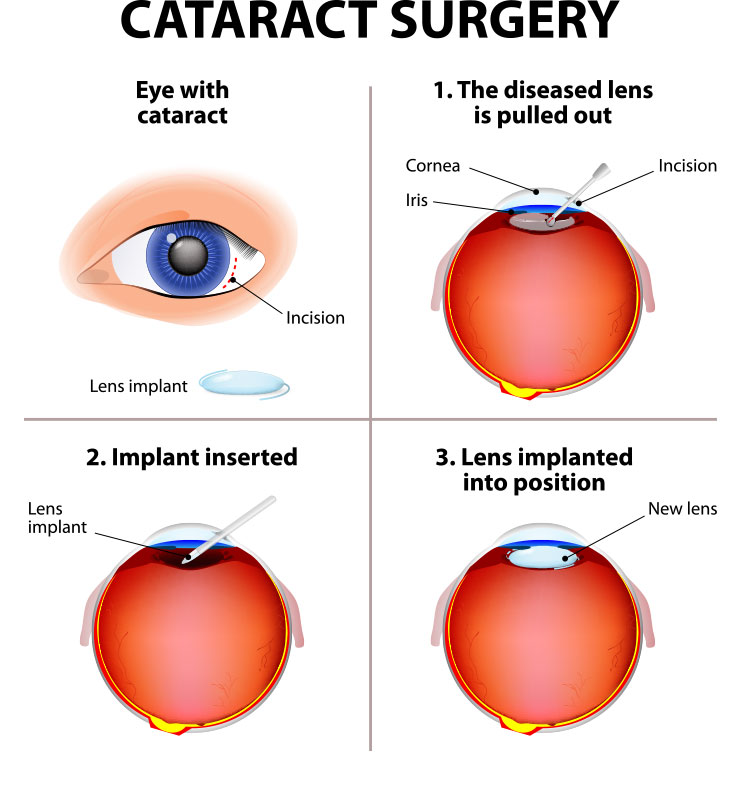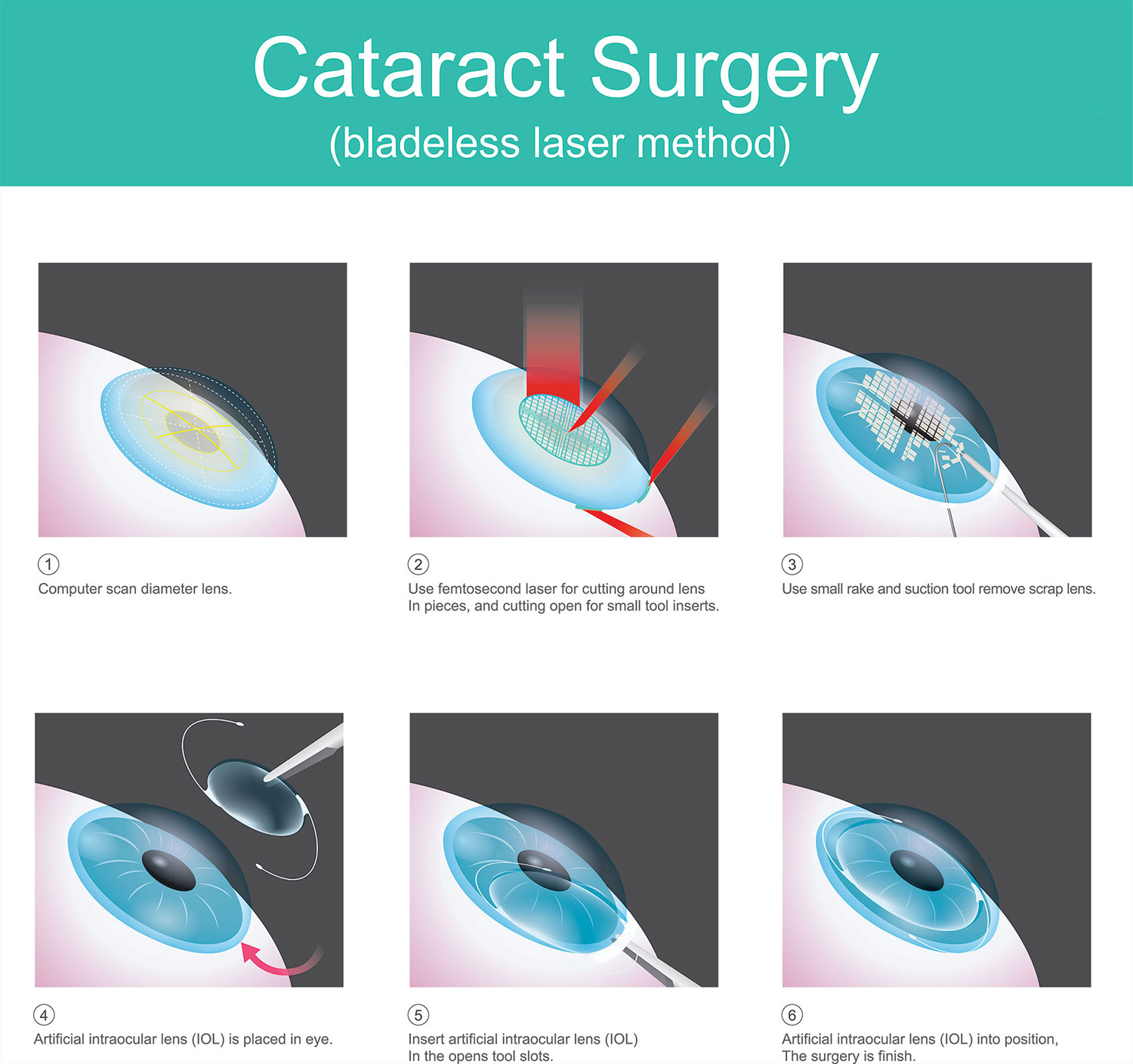Cataract
What are cataracts?
As we age, the structure of the proteins that make up the lens of the eye begin to change. These structural changes in the lens of the eye are often the result of oxidative stress from sunlight exposure and antioxidant depletion. As the proteins in the lens of the eye change, it causes clouding and distortion of the lens of the eye. This clouding of the lens of the eye is referred to as a cataract, and eventually leads to a decrease in vision and increase in glare or halos (especially at nighttime). Most cataracts occur as a normal part of the aging process, but can sometimes be caused by medical conditions (diabetes), medications (steroids), injuries to the eye or face, or previous eye surgeries (retinal detachment repair). Cataracts typically begin forming in someone’s 50s and are usually slowly progressive. Cataracts often do not become a problem until you are in your 60s or 70s, but a cataract sometimes affects the vision at earlier ages in some patients
How can I reduce my chances of developing cataracts?
Progression of cataracts can occur with exposure to ultraviolet light (sunlight) and exposure to chemicals that stress the body (such as cigarette smoke or other toxins). Improving diet, exercising, wearing sunglasses at all times outdoors, and quitting smoking are all ways to slow down cataract formation. Despite perfect adherence to these guidelines, cataracts are a natural part of the aging process and cataracts will still develop over time.
How can I tell if I have a cataract?
Cataracts often cause a gradual blurring or dimming of vision. Some people see a “halo” or haze around lights, or have hazy or double (or multiple) vision. At first, the symptoms may only occur in dim light or when you face bright, oncoming car headlights. Over time the glare may make night driving especially difficult. Advanced cataracts can cause distorted or blurred vision that occurs all the time and cannot be improved with glasses.
Is it possible to have a cataract and not notice it?
Yes. If the cataract is small, it may not disturb your vision or cause any symptoms at all. Most cataracts begin in the late 40s and early 50s and very gradually worsen over time. Since this worsening and distortion of vision occurs very gradually, it is often not noticeable at first. Even a dense cataract may not be noticed if the other eye is providing clear vision. Unless it is very dense, a cataract is usually not visible to the naked eye of an observer.
What is the Treatment for Cataracts?
Currently, there are no eye drops or medical treatments that are effective in treating or reversing cataracts. The only effective treatment is surgical removal of the cataract (cloudy lens). This is performed in the comfort and safety of our state-of-the-art outpatient surgery center using the latest treatment techniques and technology. Our experienced eye surgeons will remove the cataract that has become clouded, and replace it with an artificial lens, known as an intraocular lens, or IOL.
How is traditional cataract surgery performed?
A cataract patient is prepared using conscious sedation using medications such as Valium, Versed, and Fentanyl. Once relaxed, the patent is transferred to an operating suite where the cataract surgery will be performed. Traditional cataract surgery is performed using blades to make incisions on the surface of the cornea. Through these incisions, the surgeon makes a small opening in the capsule surrounding the cataract.
The cataract is then divided into pieces and removed from the eye using phacoemulsification and aspiration. Lastly, a new artificial lens implant (called an intraocular lens or IOL) is placed into the eye. The entire surgery takes 10 to 15 minutes and is typically pain-free. Patients go home the same day and visual recovery typically takes 2-5 days for an uncomplicated surgery.
How is laser-assisted cataract surgery performed?
Azar Eye Clinic was the first clinic in Lafayette, LA and Acadiana to offer cutting edge Femtosecond Laser Assisted Cataract Surgery (FLACS) with the Alcon LenSx laser. Azar Eye Clinic was the first facility in Lafayette, LA and Acadiana to implant the newest Alcon PanOptix trifocal IOL. No one in Lafayette, LA or Acadiana has more experience with LenSx laser cataract surgery than the Azar Eye Clinic.
Customized laser cataract surgery (also called FLACS) enhances many of the crucial steps of cataract surgery by performing laser incisions, laser capsule opening, laser softening or division of the cataract, and correction of low amounts of astigmatism. With laser cataract surgery, the need for blades is eliminated because the laser performs all of the incisions. Customized laser cataract surgery offers increased precision, reproducibility, faster visual recovery, and also the ability to correct low amounts of astigmatism.




